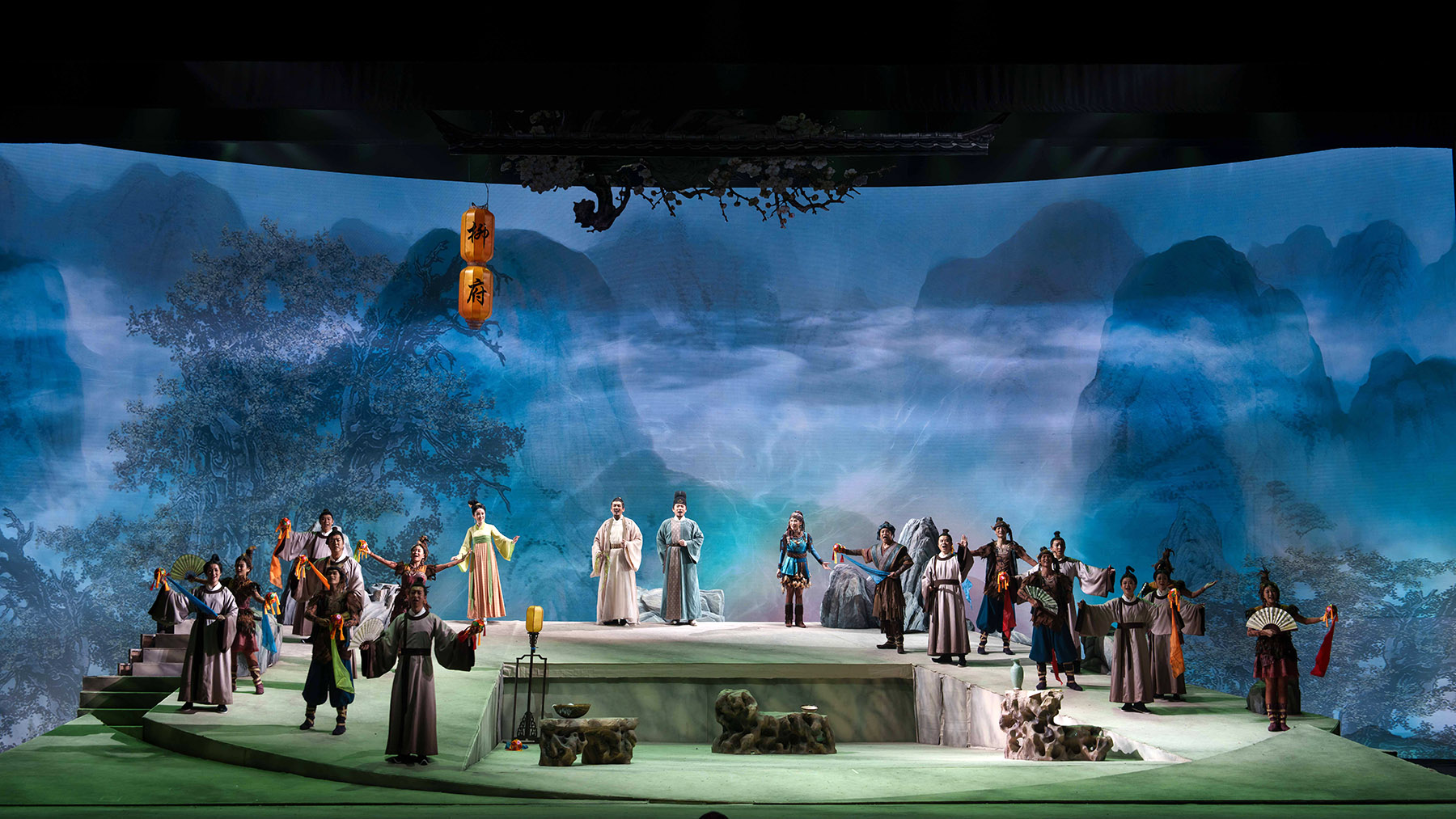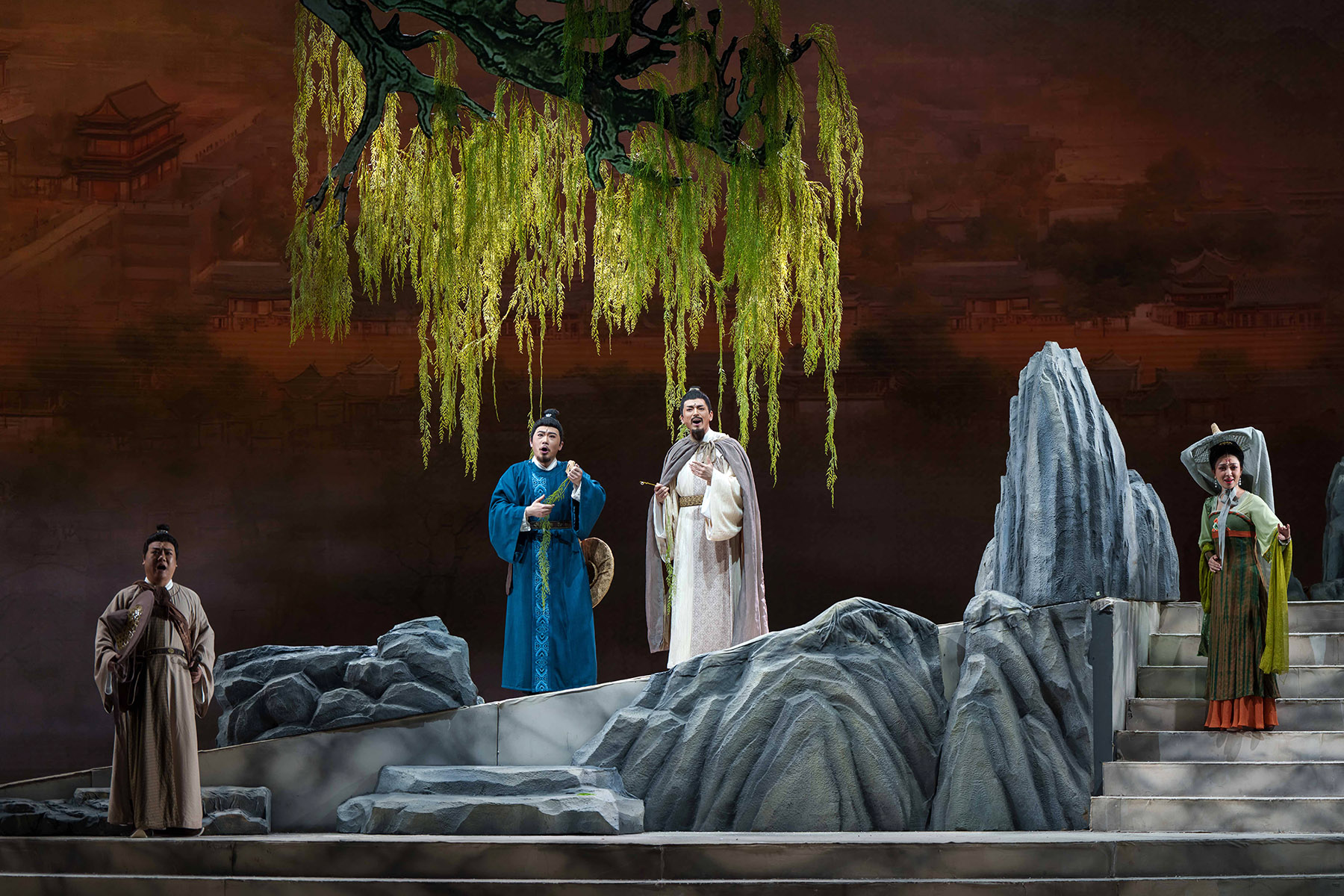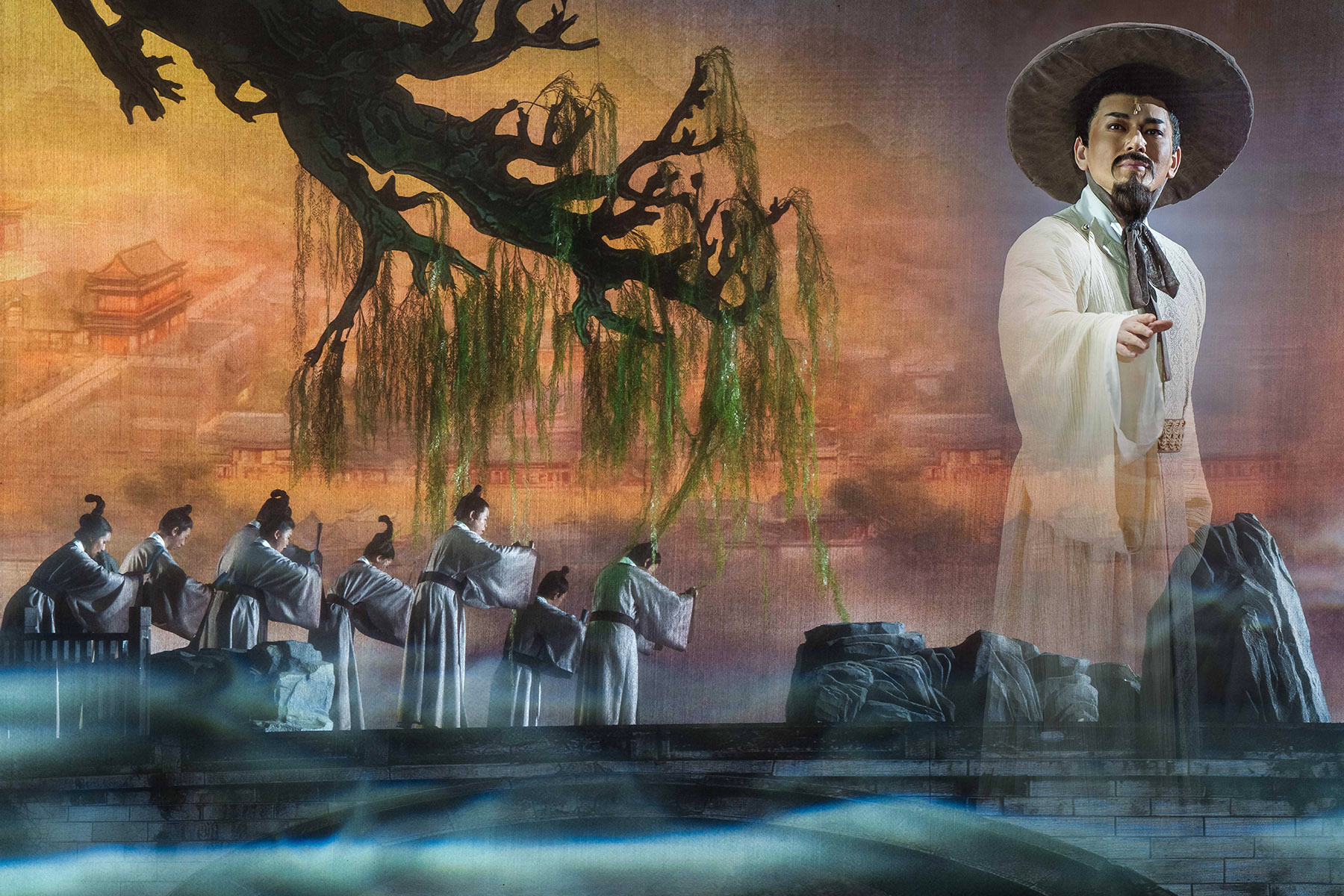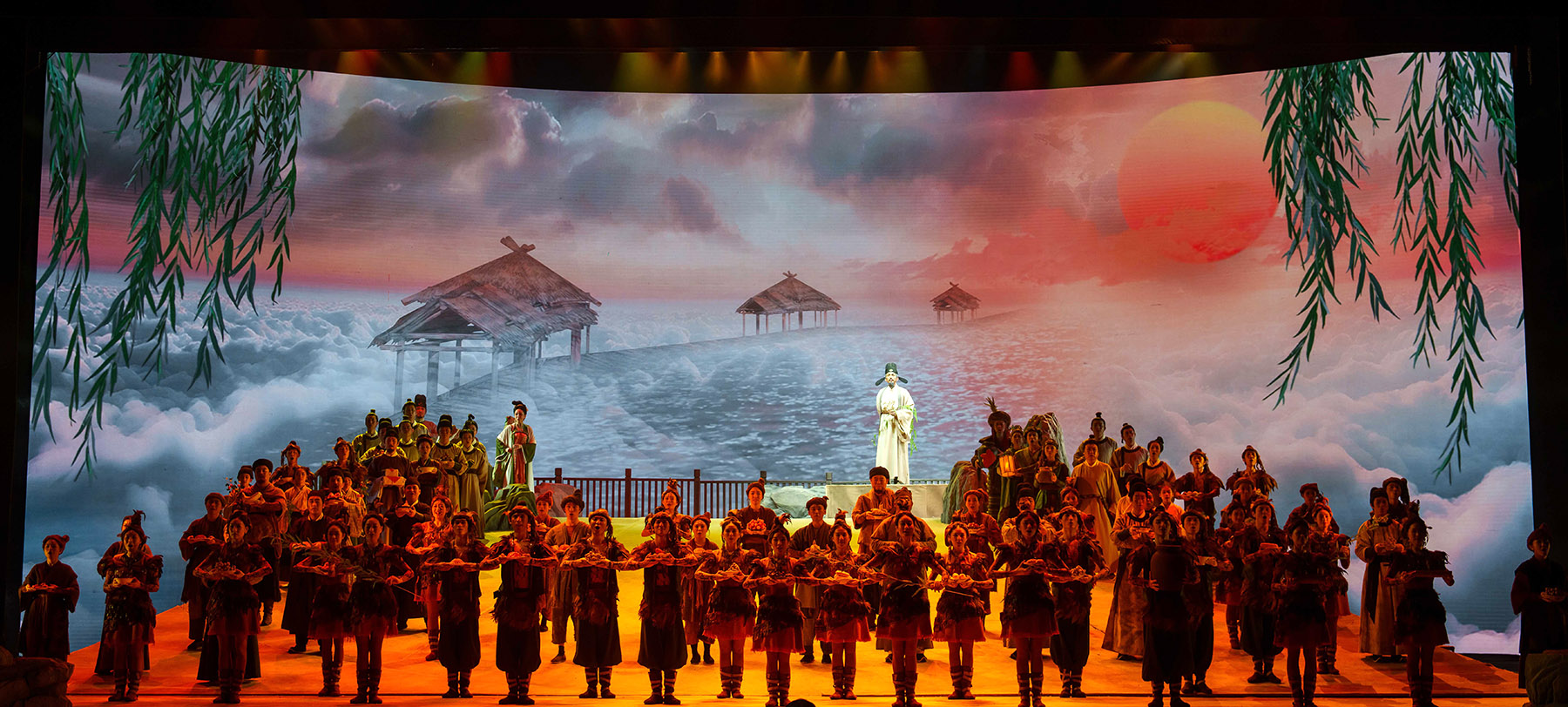A new folk opera explores the virtues that an exiled official embodied more than a millennium ago, Cheng Yuezhu reports.

In the summer of 2018, Chang Jianjun, honorary president of the Guangxi Theater Association and playwright of the new folk opera production, Liu Liuzhou, awaited the arrival of a group of theater experts in Liuzhou, Guangxi Zhuang autonomous region.
One of the guests suggested they visit the memorial temple of Liu Zongyuan (773-819), a renowned writer, philosopher and politician from the Tang Dynasty (618-907).
Chang had visited the temple many times. But this time, the expert posed a thought-provoking question: "How would you write about Liu Zongyuan?"
READ MORE: Composer's memories help shape the future
He thought for a moment. Then, inspiration struck. He would create a dialogue between Tang poetry and Guangxi's folk songs.
"In early 2022, I actually received the invitation to write a folk opera about Liu Zongyuan," Chang recalls.
"I first delved into extensive historical records and then plunged into a long period of contemplation. I thought: What are we telling the audience by writing about Liu today?"

Despite Liu's aspirations to contribute to the imperial court, he faced an ill-fated political career. He was demoted and exiled from the then capital, Chang'an, which today is Xi'an, Shaanxi province.
From 805 to 815, he was exiled to Hunan province's Yongzhou and was subsequently exiled to the even more remote Liuzhou, where he served as an official until his death.
While he was dissatisfied with his position and longed to return to the capital, he took measures to popularize Confucianism, free the poor from servitude and cultivate the wastelands. This changed locals' lives, and he was given the sobriquet, "Liu Liuzhou".
The opera Liu Liuzhou premiered on April 11 at the China National Opera House in Beijing.
Liu is considered one of the eight most influential essayists of the Tang and Song (960-1279) dynasties and is a household name in China. Chang believes it is meaningful to highlight the last years of his life, when he faced adversities yet continued to pursue his goals and ideals, embodying his inner strength and rectitude.
"The reason I chose to highlight the final four years of Liu's life in Liuzhou as the main storyline is to enable contemporary audiences to better reflect on the past and to revere history and tradition," Chang says.

The production aims to depict major historical events but also to creatively narrate the details of Liu's four years in Liuzhou.
In addition to such historical figures as Liu Zongyuan and his friend, renowned poet and philosopher Liu Yuxi, the production imagines several fictional characters, especially Guangxi locals who present unique folk singing styles.
Composer Du Ming says the production merges traditional Chinese music based on the pentatonic scale; instruments that ancient literati adored, such as guqin (a seven-string zither) and xiao (a bamboo flute); Guangxi's folk songs; and traditional Chinese operatic elements to develop the characters, ambiance and plot.
"We aim to not only uphold China's musical tradition but also to showcase distinctive local cultural characteristics," Du says.
"Based on the pentatonic scale, the songs of characters from central parts of China adopt music that sets a melancholic tone, which matches their sense of dejection. But for Guangxi characters, the brighter styles commonly used in folk songs are adopted to convey their optimism and positivity despite undesirable living conditions."

The dramatic contrast in musical tones is gradually replaced by the interaction and integration of different musical styles, reflecting the changes in the characters' states of mind.
In the production, the audiences can hear solo performances of authentic folk songs, antiphonal harmonies among the scholarly characters and the folk song singers, as well as a grand group song that incorporates different vocal genres.
The Beijing premiere fell on the third day of the third lunar month on the lunar calendar — a day when people of the Zhuang ethnic group offer sacrifices to their ancestors and when young people socialize through antiphonal singing.
ALSO READ: The renaissance of centuries-old Tibetan opera
Before the premiere began, performers sang representative folk songs and performed ethnic dances onstage to give audiences a sense of Guangxi's folk music.
"An artistic portrayal of Liu's adherence to the concepts of serving the people and his unwavering integrity undoubtedly delivers positive social implications," Chang says.
"Audiences of all backgrounds can find enlightenment from this sage from more than a thousand years ago."
Contact the writer at chengyuezhu@chinadaily.com.cn


